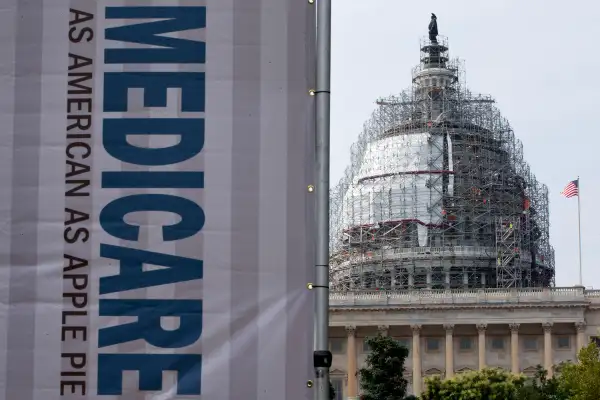Can a 65-Year-Old Business Owner Hold Off on Medicare?

Q: My client, who just turned 65, owns a small business with less than 20 employees. Must he apply for Medicare or can he continue with his group coverage? He currently has an HSA-qualified plan and wishes to keep the plan and contribute to the health savings account. If he has Medicare coverage, he will not be able to contribute. Your article Master the Medicare Maze states that you have to get Medicare at 65 if your employer has less than 20 employees, but it is my understanding that if the employer is willing to offer the coverage, it would not be necessary to sign up for Medicare.—Christine
A: Your client should check with his health-plan provider or his plan documents to see if the plan requires covered workers to get Medicare when they turn 65.
Employer plans for workplaces with fewer than 20 employees are allowed to have such a provision. Plans at larger employers can not, and must continue to offer group coverage as primary health insurance to people of Medicare age if they are covered by the plan.
Small group health plans generally require Medicare enrollment at 65. If your client has such a plan, Medicare will become the primary payer of claims and the employer group plan would become the secondary payer. Failure to enroll in Medicare would mean that the employee had no primary health insurance.
Your client may, however, have two workarounds that would allow him to avoid signing up for Medicare and thus retain his eligibility to participate in his HSA plan. (You are correct that signing up for Medicare would make continued HSA contributions illegal under IRS rules.)
First, your client can explore purchasing a new group policy that doesn’t require workers to sign up for Medicare when they turn 65. Odds are, this will be a more expensive policy, because private insurers’ expenses are lower when Medicare becomes the primary payer of covered insurance claims.
Second, your client can explore becoming part of a multi-employer insurance plan that would allow him to avoid the small-employer rules, and effectively be treated as a larger employer. However, this, too, may increase his premiums.
In Your Guide to Who Pays First, Medicare notes:
If your employer joins with other employers or employee organizations (like unions) to sponsor or contribute to a multi-employer or a multiple employer plan, and any of the other employers has 20 or more employees, Medicare would generally pay second. However, your plan might ask for an exception, so even if your employer has less than 20 employees and participates in a multi-employer or multiple employer plan, you’ll need to find out from your employer whether Medicare pays first or second.
Because your client wishes to avoid signing up for Medicare, I assume that he would not seek an exception in this situation. Besides unions, other sources of multi-employer plans include local affinity groups, such as a chamber of commerce, and trade associations specific to his business.
There are other considerations here. Does your client contribute to his employees’ health insurance and, if so, how much does he spend? If he has or soon will have other employees turning 65, might he come out ahead if Medicare became the primary payer?
Also, he would have to decide if his continued HSA tax deductions are worth the work of making other health-coverage arrangements.
Philip Moeller is an expert on retirement, aging, and health. He is co-author of the recently updated New York Times bestseller, “Get What’s Yours: The Revised Secrets to Maxing Out Your Social Security.” His companion book, “Get What’s Yours for Medicare: Maximize Your Coverage; Minimize Your Costs,” will be published this fall. Reach him at moeller.philip@gmail.com or @PhilMoeller on Twitter.